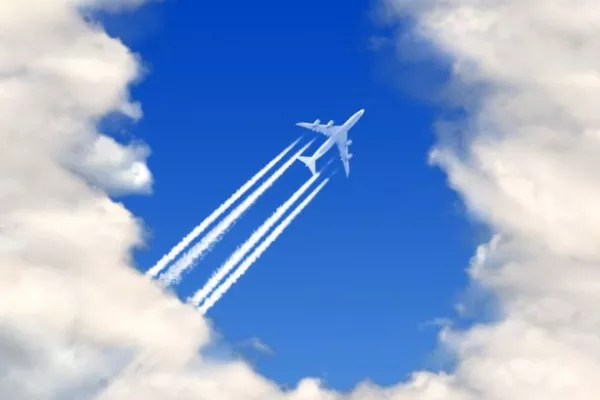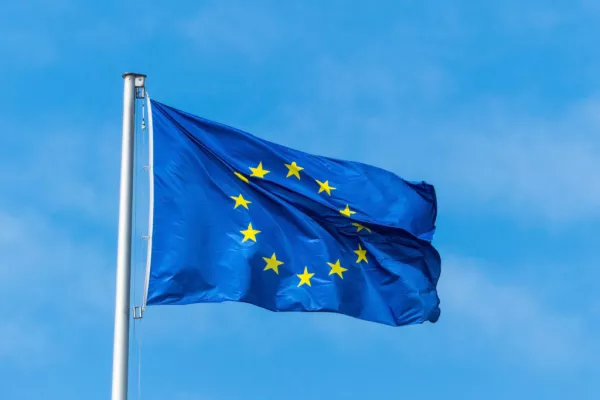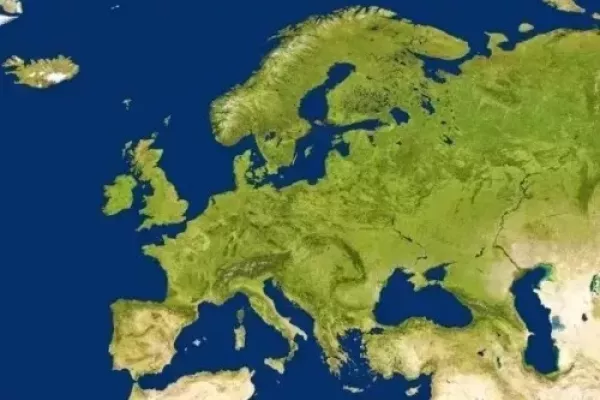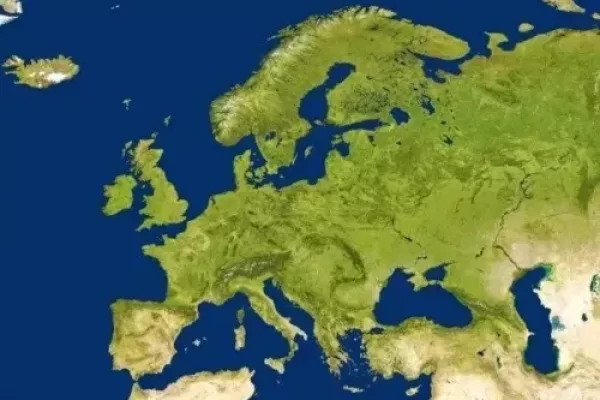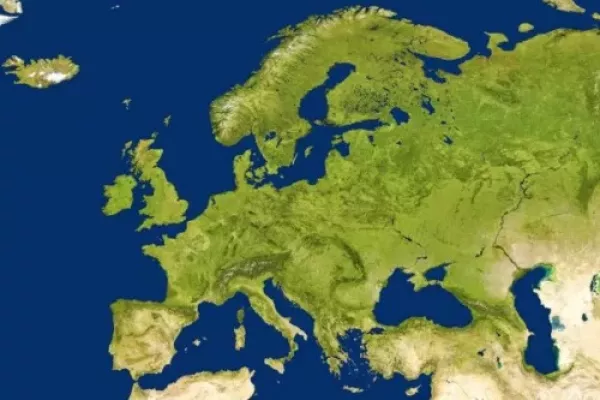European nations and Canada moved on Sunday 27 February to shut their airspace to Russian aircraft, an unprecedented step aimed at pressuring President Vladimir Putin to end his invasion of Ukraine, the biggest attack on a European state since World War Two.
Aeroflot said that it would cancel all flights to European destinations after E.U. foreign policy chief Josep Borrell said the European Union had decided to close its airspace to Russian traffic.
The United States is considering similar action, but has yet to make a final decision, according to U.S. officials. The U.S. government said citizens should consider leaving Russia immediately on commercial flights, citing an increasing number of airlines cancelling flights as countries closed their airspace to Russia.
The ban on Russian jets comes as the airline industry continues to grapple with the fallout from the COVID-19 pandemic that is still undermining global demand for travel.
Germany, Spain and France joined Britain, the Nordics and Baltic states in declaring bans on Russian use of their airspace, a major escalation in a tactic by mostly NATO allies to wage economic war against Putin in retaliation for the invasion.
The West, led by the United States, also unveiled sweeping new financial sanctions on Russia.
Russia is now widely expected to retaliate further against the air blockades and other sanctions. It has already responded to the earliest European airspace bans with its own edicts barring airlines from Britain, Bulgaria and Poland.
Without access to Russia's airways, experts say carriers will have to divert flights south while also avoiding areas of tension in the Middle East.
A reciprocal airspace ban by Russia and the United States would cause longer flight times for US carriers and could require crew changes on East Coast routes to Asia, said US-based analyst Robert Mann of R.W. Mann & Company, Inc.
It could make certain flights too costly to operate for US carriers. "It would just add a lot of expense," he said.
Will Washington Follow?
France on Sunday evening said it was shutting its airspace to all Russian aircraft and airlines, in an announcement echoed across continental Europe.
The closure of European airspace to Russian airlines and vice versa had immediate impacts on global aviation.
Air France-KLM AIRF.PA said it is suspending flights to and from Russia as well as the overflight of Russian airspace until further notice. Air France said it was also suspending flights to and from China, South Korea and Japan temporarily while it studied flight plans that avoided Russian airspace.
Finnair said it would cancel flights to Russia, Japan, South Korea and China through March 6 as it avoided Russian airspace, though flights to Singapore, Thailand and India would continue with an added hour of flight time.
If US airlines were barred from Russian airspace, it would lengthen some international flights and some would likely be forced to refuel in Anchorage, industry sources told Reuters. The flights that could be impacted include US flights to India, China, Japan and Korea, the sources said.
The White House National Security Council declined to comment on whether the United States will close its skies to Russia and referred questions to the Federal Aviation Administration, which did not immediately comment.
Swiss International Air Lines, a unit of Germany's Lufthansa <LHAG.DE, said it was monitoring the situation but maintaining regular services to Russia for now.
Canada also said it had shut its airspace to Russian aircraft effective immediately.
There were no direct flights between Russia and Canada but several Russian flights a day had used Canadian airspace.
An Aeroflot flight from Miami to Moscow passed through Canadian airspace on Sunday after the ban was announced, according to flight tracking website FlightRadar24.
A spokesperson for Canada's transport minister said air traffic control manager NAV Canada had mistakenly permitted a banned aircraft into Canadian airspace and steps were being taken to ensure it did not happen again.
Transport Canada said it was launching a review into the conduct of Aeroflot and NAV Canada leading up to the violation.
Disruption To Freight, Lessors
The aviation sanctions also spell disruption for logistics companies and the mainly Ireland-based aircraft leasing industry.
US-based United Parcel Service Inc UPS.N and FedEx Corp FDX.N, two of the world's largest logistics companies, have said they are halting deliveries to destinations in Russia. It was unclear whether both firms continue to use Russian airspace as part of their general operations. Neither responded immediately to requests for comment.
Asian aircraft lessor BOC Aviation 2588.HK said on Monday 28 Februrary that EU sanctions requiring the termination of leases to Russian airlines by March 28 would affect most of its aircraft in Russia.
The sanctions are a setback for the leasing industry after Russian carriers were seen as more reliable performers on jet rental agreements than many global carriers during the pandemic.
Russian companies have 980 passenger jets in service, of which 777 are leased, according to analytics firm Cirium. Of these, two thirds, or 515 jets, with an estimated market value of about $10 billion, are rented from foreign firms.
Airspace Closures Send Airlines On Detours, Add To Cargo Woes
The above news was followed by news that airlines on Monday 28 February braced for a potentially lengthy sanctions war after the EU banned Russian airlines and Moscow pledged to retaliate.
Dozens of flights were cancelled or sent on costly detours as the crisis hit airline shares.
The rerouting meant Kazakhstan's airspace saw a tripling of flights to more than 450.
Airline industry executives said they were expecting Russia to ban their use of routes crossing the country after the European Union on Sunday banned Russian airlines as fighting raged in Ukraine.
On Monday 28 February, the Kremlin said that there would be a response to Western sanctions against Russia's aviation industry.
"The guiding principle will be reciprocity, and our own interests will be at the forefront of that," Kremlin spokesperson Dmitry Peskov told reporters on a conference call.
Without access to Russia's airspace, carriers will have to divert flights south while also avoiding areas of tension in the Middle East.
Shares in European airlines and airport operators were down 3%-6% in early trade on Monday 28 February, while Finnish national carrier Finnair FIA1S.HE cut its guidance and saw its shares tumble 23%.
Germany's Lufthansa LHAG.DE said that 30 flights to Russia would be cancelled this week by Lufthansa and its subsidiaries Eurowings and Austrian Airlines, while Latvia's AirBaltic said it was extending its suspension of flights to Russia until the end of May.
Lufthansa said its flights from Europe to Tokyo and Seoul would have to fly detours for which the company had secured necessary flight rights.
In Asia Singapore Airlines SIAL.SI said on Monday 28 February it was suspending all services between Singapore and Moscow until further notice for "operational reasons".
Finnair scrapped its 2022 guidance, fearing significant loss of business as it uses a route across Russian skies from Europe to Asia via its hub in Helsinki.
Korean Air 003490.KS, Japan Airlines 9201.T and Japan's ANA Holdings 9292.T said on Monday 28 February that they were continuing to use Russian airspace but had no plans to add flights to Russia or Europe to replace flights cancelled by European carriers.
Demand to Japan and South Korea has been low due to COVID-related travel restrictions.
Airline Swiss, also owned by Lufthansa Group, said it would continue to fly to Russia as Switzerland has not banned Russian airlines.
More Supply Chain Disruption
Airspace shutdowns and flight cancellations will also set to affect cargo traffic, further exacerbating global supply chain woes caused as the pandemic slows cargo handling worldwide.
"Due to the ongoing dramatic developments in the Russia-Ukraine conflict, Lufthansa will no longer use Russian airspace," Lufthansa Cargo said.
U.S.-based United Parcel Service Inc UPS.N and FedEx Corp FDX.N, two of the world's largest logistics companies, said they were halting deliveries to Russia.
Global aircraft also lessors said they would have to terminate hundreds of plane leases with Russian carriers in the wake of EU sanctions that call for such contracts to end by March 28.
Russia's Aeroflot AFLT.MM said on Sunday 27 February that it would cancel all flights to European destinations after EU foreign policy chief Josep Borrell said the EU had decided to close its airspace to Russian traffic.
The United States is considering similar action, but has yet to make a final decision, according to US officials.
The US government said on Sunday February 27 that citizens should consider leaving Russia immediately on commercial flights, citing an increasing number of airlines cancelling flights as countries close their airspace to Russia.
News by Reuters, edited by Hospitality Ireland. Click subscribe to sign up for the Hospitality Ireland print edition.
